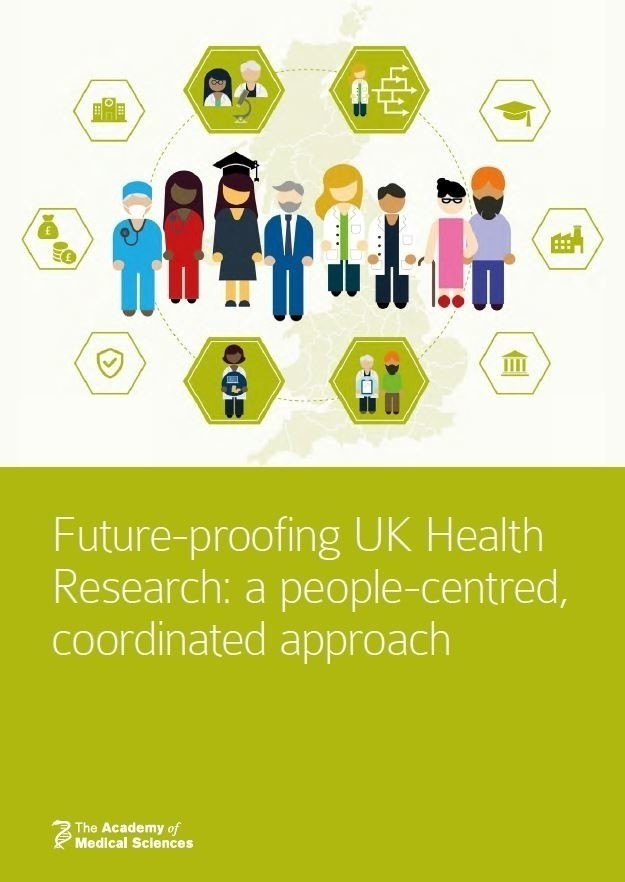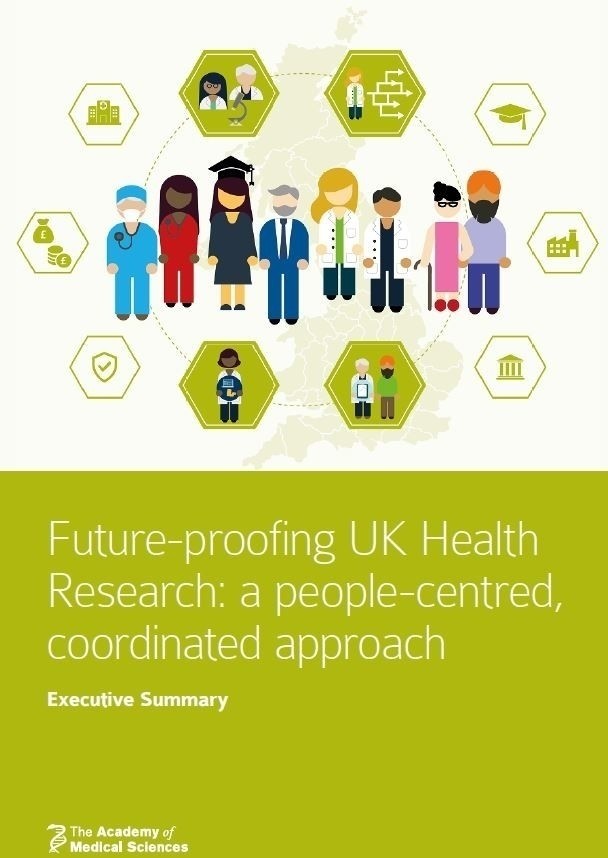The Academy of Medical Sciences has published new insights calling for enhanced collaboration between the NHS, universities and industry to strengthen the UK’s global position in health research, identifying a ‘rare 10-year window of opportunity’ ahead of crucial government decisions this summer.
The ‘Future-proofing UK Health Research: 2025 Update Report’ builds on the Academy’s landmark 2023 review, drawing on discussions from a high-level symposium that brought together over 40 leaders from across the UK health research ecosystem. Released ahead of the Government’s June spending review and 10-Year Health Plan, it emphasises how breaking down barriers across the sector would deliver better health outcomes and economic returns, even in a challenging fiscal environment.
The report highlights how strategic partnerships can overcome the traditionally fragmented funding landscape, foster mobility between sectors, and pool resources and expertise to maximise funding impact and accelerate research progress. The symposium showcased diverse examples where collaboration is already delivering results, such as the Type 1 Diabetes Grand Challenge where research charities have pooled resources and expertise to maximise impact; successful approaches to data sharing and integration including the Vivaldi social care project and NHS Scotland’s integrated diabetes database; and greater recognition of collaboration between academic and non-academic partners in the next Research Excellence Framework. These real-world examples demonstrate how breaking down traditional barriers can accelerate progress from lab to clinic.
However, symposium delegates identified that cultural differences and practical barriers still prevent researchers from moving easily between academia, the NHS and industry. Specifically, differences in intellectual property approaches, information sharing practices, job security concerns and pay disparities were cited as ongoing challenges to mobility.
Professor Andrew Morris CBE FRSE PMedSci, President of the Academy of Medical Sciences, said: “As we saw during the Covid-19 pandemic, the UK can achieve remarkable results when our health research sector collaborates effectively. The Academy’s updated insights report confirms that strategic partnerships not only make every pound invested work harder but are essential for tackling our most significant health challenges – from inequalities to climate change and global health security.
“Creating an open and progressive sector requires breaking down persistent barriers between the NHS, universities and industry. With the multiple long-term government plans on the horizon, we have a rare opportunity to embed this collaborative mindset and position the UK as a global leader in health research that delivers both improved patient outcomes and economic growth.”
Beyond cross-sector collaboration, symposium participants also discussed:
- The clinical academic workforce, which is both shrinking and ageing, even as the total NHS workforce has grown considerably.
- The UK’s health data remains a strong but underutilised asset, with successful examples like Scotland’s integrated diabetes data showing what is possible.
- Changes to the Research Excellence Framework offer an opportunity to incentivise better research cultures and sustainable careers.
- Even modest increases in protected time for research (just a few hours per week) could open further opportunities for nursing, midwifery and allied health professionals.
- Meaningfully involving patients and public improves research quality and outcomes but requires better signposting and evidence sharing.
The Academy of Medical Sciences is keen to support the improved coordination across the sector that symposium participants identified as essential. It now provides the secretariat for the UK Clinical Research Collaboration (UKCRC), which was established to strengthen the clinical research environment and benefit the public and patients by improving national health and increasing national wealth.
Beyond its role with UKCRC, the Academy also offers several pathways and initiatives for professionals to expand their horizons, build cross-sector relationships and develop new skills, including:
- Cross-Sector Experience Awards that offer up to £100,000 of flexible funding, enabling individuals to share skills between sectors and generate novel ideas and collaborations that could lead to new innovations.
- Regional Cross-Sector Hubs established in Wales, Northern Ireland and Scotland that bring together experts from academia, industry, healthcare and government, to tackle complex challenges and accelerate innovation
- The Academy’s FORUM which provides a neutral and independent platform for individuals from across academia, industry, the NHS, government, and the charity, regulatory and wider healthcare sector, to meet and take forward national discussions on scientific opportunities, technology trends and associated strategic choices for healthcare.


